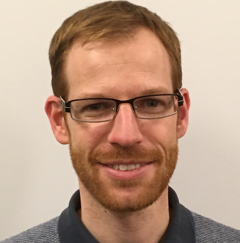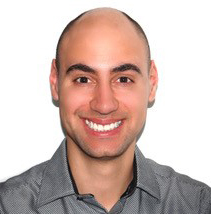Genomic analyses are yielding a host of new information on the multiple genetic abnormalities associated with specific types of cancer. A comprehensive description of cancer-associated genetic abnormalities can improve our ability to classify tumors into clinically relevant subgroups and sometimes identify drivers. However, the functional significance of cancer-associated mutations is often difficult to discern.
Forward genetic screens provide a powerful tool to identify genes or genetic networks that contribute to specific biological phenotypes or diseases and therefore hold great potential for elucidating gene function and revealing therapeutic targets for diseases. The advent of CRISPR-Cas technology has revolutionized genome editing in higher eukaryotes and enables efficient gene manipulation in mammalian cells. CRISPR guide-RNA libraries allow facile generation of a pool of genetically perturbed cells and its application in genetic screens has marked a major breakthrough for functional genomics in mammalian cells.
Using genome wide CRISPR-Cas9 knockout libraries, the Moffat Lab has screened various human cell lines to reveal a set of core fitness genes required to sustain proliferation, and context-dependent fitness genes that are essential only in a specific genotype uncovering novel genetic dependencies. Accompanying these screens, the Moffat Lab has developed statistical scoring algorithms like the Bayesian Analysis of Gene Essentiality (“BAGEL”) to identify fitness genes, as well as gold standard reference gene sets that allow us validate screening performance. Using an optimized screening workflow, they are currently applying CRISPR-Cas9 technology to construct a genetic interaction network for a reference human cell line (HAP1) for functional annotation of the human genome based on mutant query screens. In this webinar the speakers will provide an overview of this work and highlight the screening workflow developed in the Moffat lab.
Speakers

Michael Aregger, PhD, Moffat Laboratory, University of Toronto
Michael is a late-stage postdoctoral fellow in the lab of Jason Moffat at the Donnelly Centre at the University of Toronto. He completed his BSc and MSc at the University of Basel, Switzerland and obtained his PhD from the University of Dundee, UK. Michael’s research focuses on developing and applying CRISPR-Cas tools to uncover genetic dependencies in human cells and to understand how cancer cells regulate gene expression and metabolism to drive cell proliferation.

Keith Lawson, MD, Moffat Laboratory, University of Toronto
Keith is a senior PhD student in the Moffat lab in the department of molecular genetics at the University of Toronto. He completed his MD and MSc (cancer biology) at the University of Calgary, and is currently enrolled in the surgeon-scientist program as a resident in the division of urology. His research focuses on utilizing functional genomic approaches to identify novel cancer vulnerabilities, with specific areas of interest including metabolic reprogramming, immunotherapy, and genitourinary malignancies.
Who Should Attend?
Academic & pharmaceutical researchers in basic research & drug discovery who are interested in:
- Cancer research
- How to study the influence of mutations on phenotype and scale
- CRISPR/Cas9 technology to provide further information to de-risk potential druggable targets
What You Will Learn
In this webinar, you will learn:
- How to design and perform genome-wide pooled CRISPR screens in mammalian cells
- To use the gold standard essential and non-essential reference gene sets to control screen performance
- Experimental approaches to reveal genetic interactions in isogenic CRISPR modified human cells lines
Xtalks Partner
Horizon Discovery Group
Horizon Discovery Group plc (LSE: HZD) (“Horizon“), is a world-leading gene editing company that designs and engineers genetically-modified cells and then applies them in research and clinical applications that advance human health.
Horizon’s core capabilities are built around its proprietary translational genomics platform, a highly precise and flexible suite of gene editing tools (rAAV, ZFN and CRISPR) able to alter almost any gene sequence in human or mammalian cell lines.
Horizon offers over 23,000 catalogue products and related research services, almost all of which are based on the generation and application of cell and animal models that accurately recapitulate the disease-causing genetic anomalies found in diseases like cancer. Horizon’s commercial offering has been adopted by approximately 1,600 unique research organisations in over 50 countries as well as in the Company’s own R&D pipeline to support a greater understanding of the genetic drivers of disease and the development of molecular, cell and gene therapies that can be prescribed on a personalised basis.
Horizon is headquartered in Cambridge, UK, and is listed on the London Stock Exchange’s AIM market under the ticker “HZD.”
You Must Login To Register for this Free Webinar
Already have an account? LOGIN HERE. If you don’t have an account you need to create a free account.
Create Account



